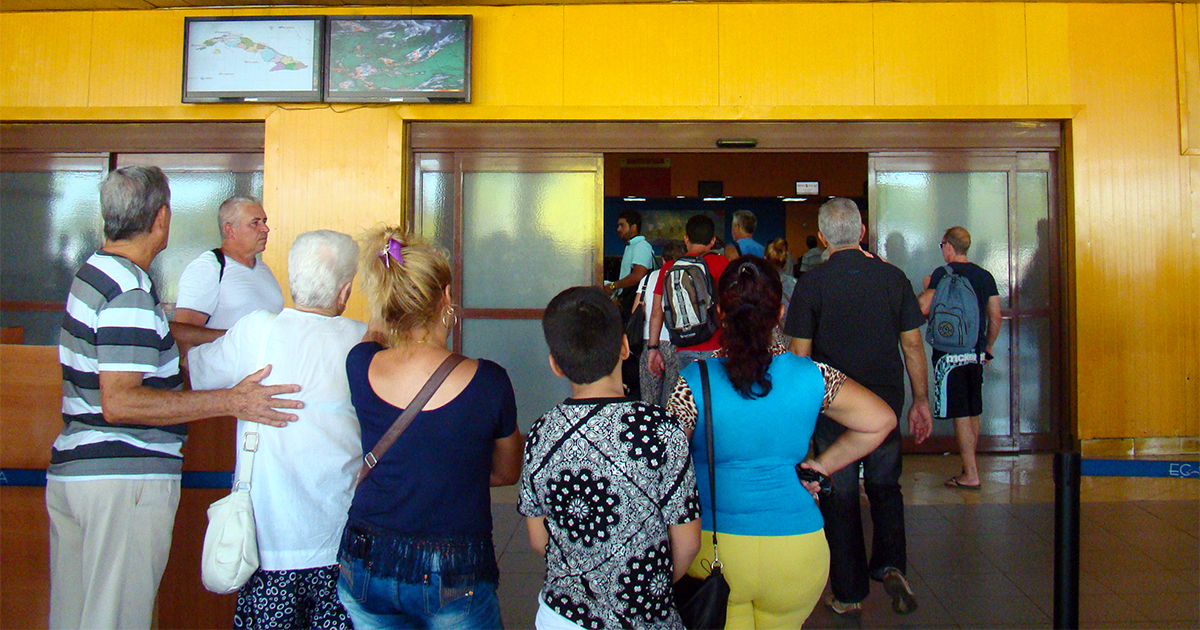The Centers for Disease Control and Prevention (CDC) in the United States have issued a Level 2 alert on a 4-point scale due to the rising cases of Oropouche virus in Cuba. U.S. authorities are urging travelers to take enhanced precautions to avoid contracting this arboviral disease, and especially advising pregnant women to avoid traveling to the island unless absolutely necessary.
This alert comes at a time when Cuba is grappling with an epidemiological crisis, exacerbated by the rapid spread of the disease across the country following the first confirmed cases in Santiago de Cuba at the end of May.
On their website, the CDC warns that "multiple cases of Oropouche have recently been reported in American and European travelers returning from trips to Cuba, indicating a continuous risk." A map published by U.S. health authorities highlights 11 provinces in Cuba with reported cases of Oropouche.
These provinces include: Mayabeque, Matanzas, Villa Clara, Cienfuegos, Sancti Spíritus, Ciego de Ávila, Holguín, Santiago de Cuba, and Guantánamo. However, Cuba's own Ministry of Public Health (MINSAP) has confirmed that the disease is now present throughout the entire country, including the Isle of Youth.
The CDC emphasizes the importance of preventing insect bites, especially from mosquitoes, during any stay in Cuba, as these are the primary vectors of the Oropouche virus. Travelers are also advised to continue avoiding insect bites for three weeks after returning to the United States to minimize the risk of spreading the disease to others.
If pregnant women cannot postpone their travel to Cuba, they are strongly urged to follow all prevention recommendations strictly.
Oropouche Virus Symptoms and Precautions
The Oropouche virus, often mistaken for dengue due to similar symptoms, can affect individuals of any age. Symptoms include high fever, headache, muscle pain, joint stiffness, nausea, vomiting, chills, and sensitivity to light.
The CDC advises travelers who exhibit these symptoms during or within two weeks after their trip to seek medical attention immediately and inform their healthcare provider about their recent travel to Cuba. It’s crucial for individuals who develop the disease to avoid taking aspirin and other non-steroidal anti-inflammatory drugs like ibuprofen to reduce the risk of bleeding. They should also continue preventing insect bites during the first week of illness to avoid further spreading the virus in areas where mosquito vectors are active.
The Pan American Health Organization (PAHO) issued an epidemiological alert in early August, highlighting the severity of the situation in the Americas. Cases of death from Oropouche, the first ever recorded, were reported in Brazil at the end of July.
PAHO has also raised concerns about potential cases of vertical transmission of the virus from pregnant women to their fetuses, which could result in congenital abnormalities. Brazil confirmed a case of microcephaly and other malformations associated with Oropouche transmission, drawing international scrutiny over the risks of the virus during pregnancy.
The CDC, in collaboration with PAHO and other international partners, is investigating these cases to better understand the dangers posed by this disease, particularly to pregnant women.
Imported Oropouche Cases in Europe
The number of imported Oropouche virus cases in Europe has been rising in recent weeks, primarily through travelers from Cuba. At least 19 cases have been detected, according to data from the European Centre for Disease Prevention and Control (ECDC).
Recent reports indicate that the number of imported Oropouche virus cases in Spain has increased to 12 between June and July, all related to travel to Cuba or Brazil. The virus is also present in Italy (5 cases) and Germany (2 cases), with 18 cases linked to travel to Cuba and one to Brazil.
In early August, the ECDC confirmed two Oropouche cases in Germany and raised the count to four in Italy. By mid-July, the ECDC had revealed the detection of six cases in Europe: three in Spain and three in Italy.
The Oropouche virus is present in all Cuban provinces, according to Dr. Carilda Peña García, Deputy Minister of the Ministry of Public Health (MINSAP). In an interview with Canal Caribe, she indicated that there is "the circulation of two arboviruses with very similar initial evolution in patients seeking healthcare, along with the detection of COVID-19 cases."
The situation is worsening, keeping the island's residents on high alert, as the Ministry of Health lacks the necessary equipment and supplies to combat the disease, even in preventive measures. Francisco Durán, National Director of Epidemiology at MINSAP, acknowledged that the country does not have the fuel needed for mosquito fumigation.
FAQs on Oropouche Virus in Cuba
To provide more insights into the Oropouche virus situation in Cuba, here are some frequently asked questions and their answers:
What is the Oropouche virus?
The Oropouche virus is an arboviral disease primarily transmitted by mosquitoes. Its symptoms are similar to dengue and can include high fever, headache, and muscle pain.
Why did the CDC issue a Level 2 alert for Cuba?
The CDC issued a Level 2 alert due to the increasing number of Oropouche virus cases in Cuba and the risks this poses to travelers, especially pregnant women.
What precautions should travelers take?
Travelers should take enhanced precautions to prevent mosquito bites, such as using insect repellent, wearing long sleeves and pants, and staying in places with air conditioning or window screens.
What should pregnant women do if they must travel to Cuba?
Pregnant women who must travel to Cuba should strictly follow all prevention recommendations to avoid mosquito bites and consult their healthcare provider before traveling.
